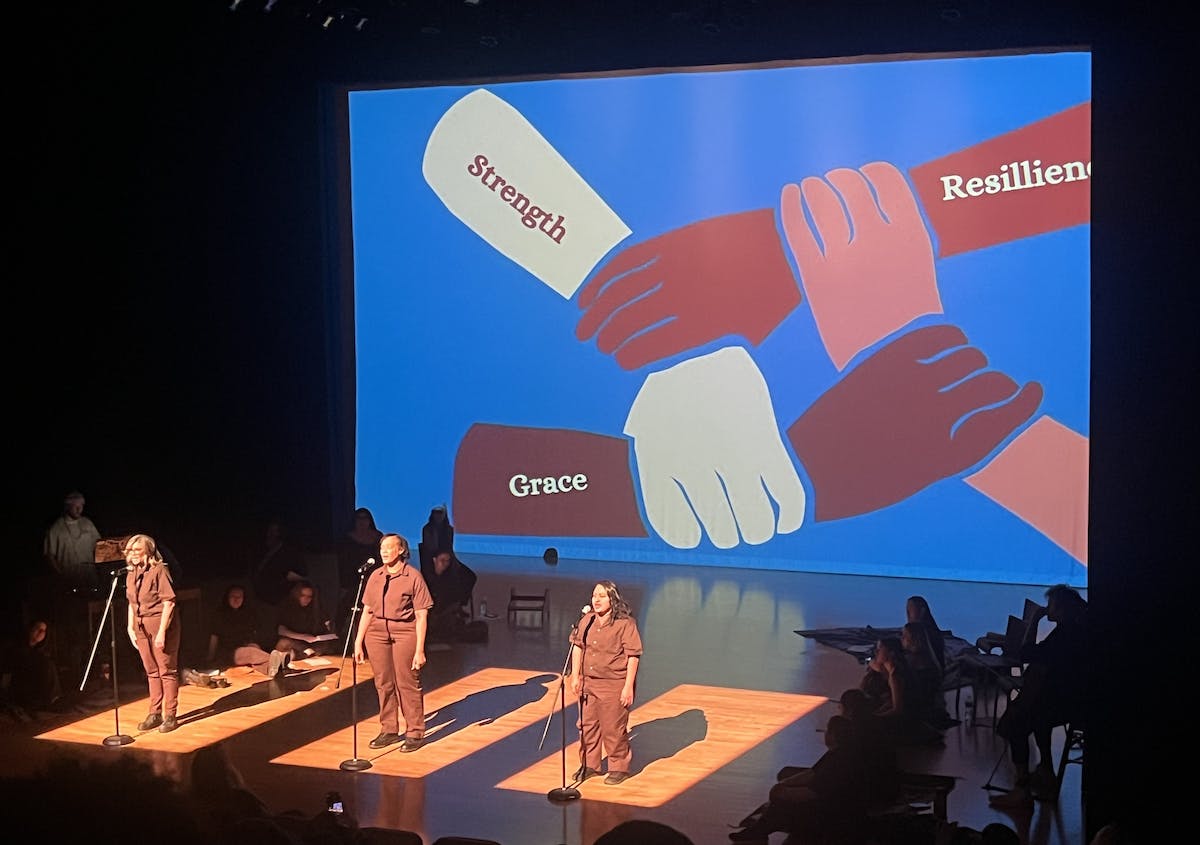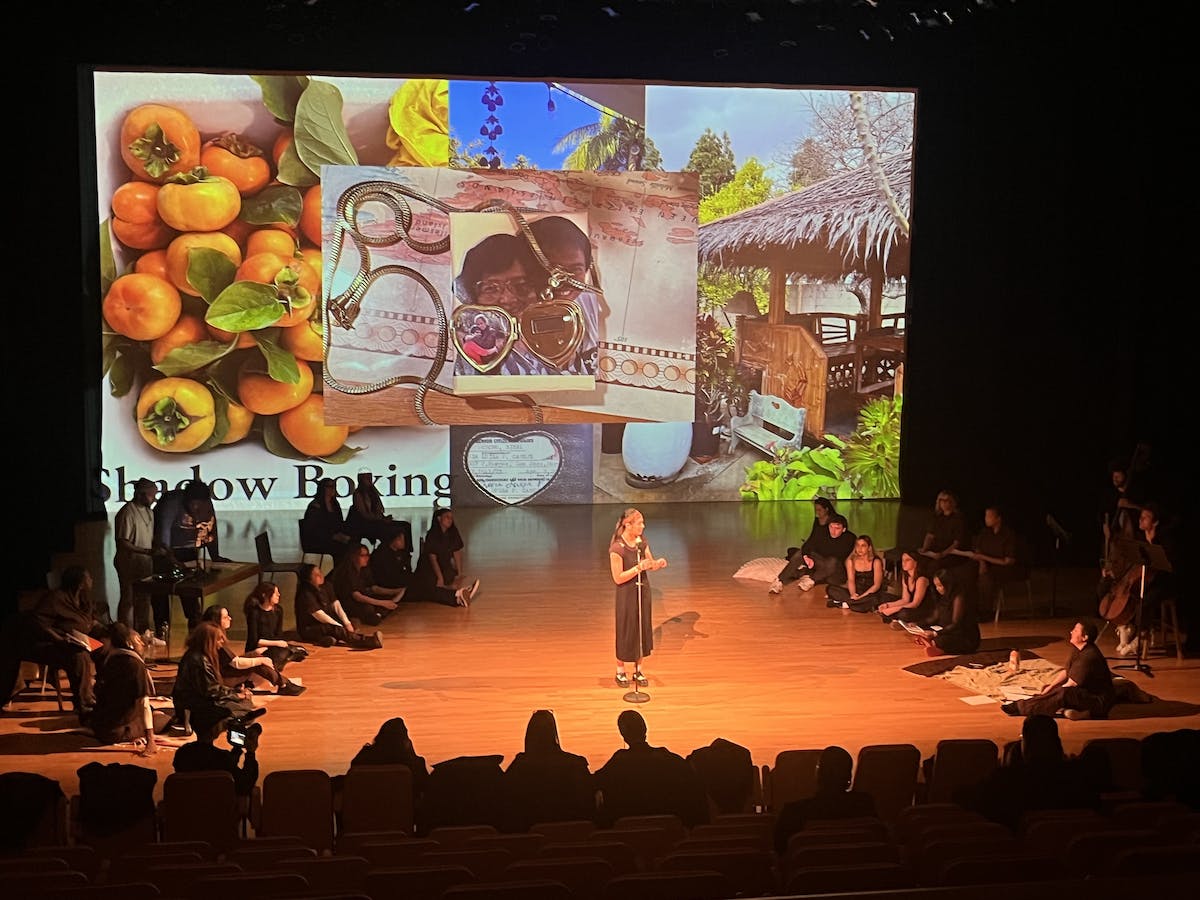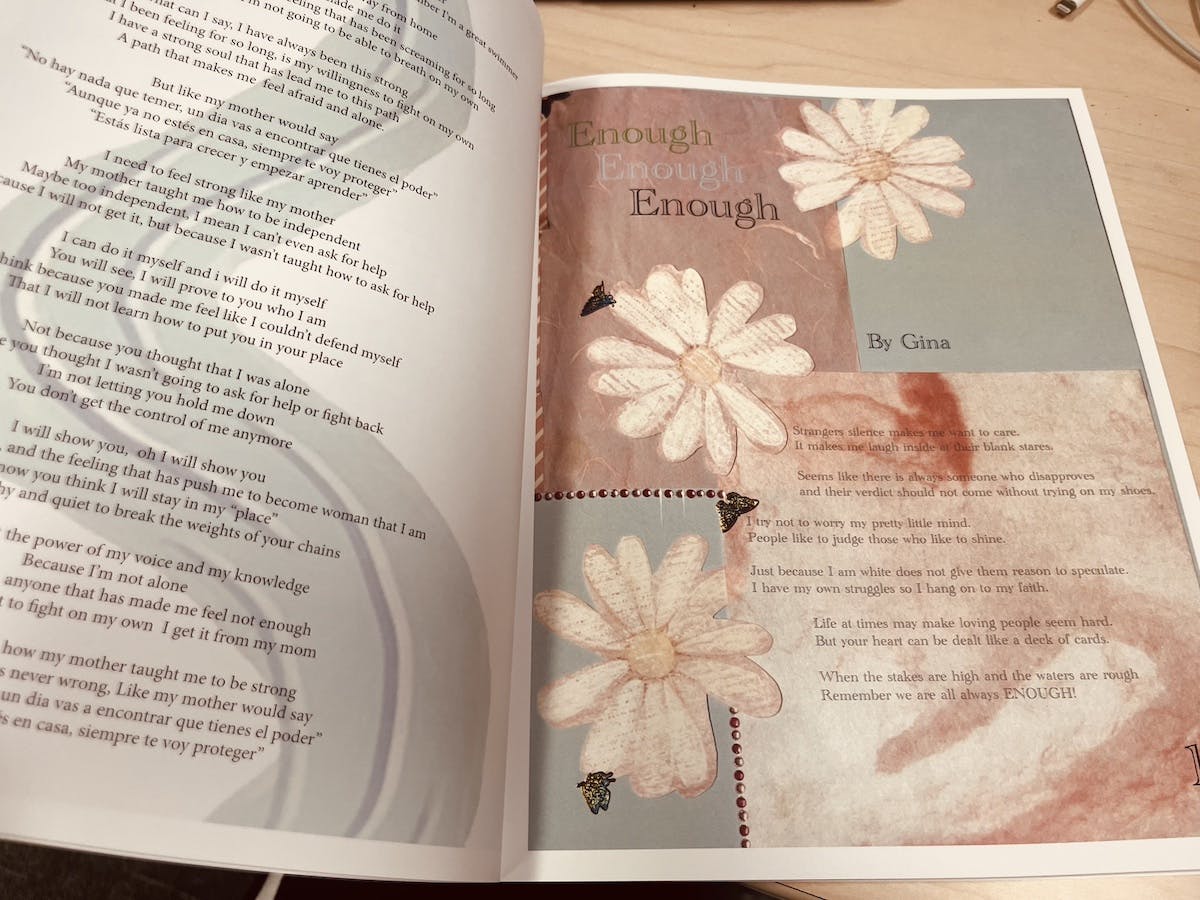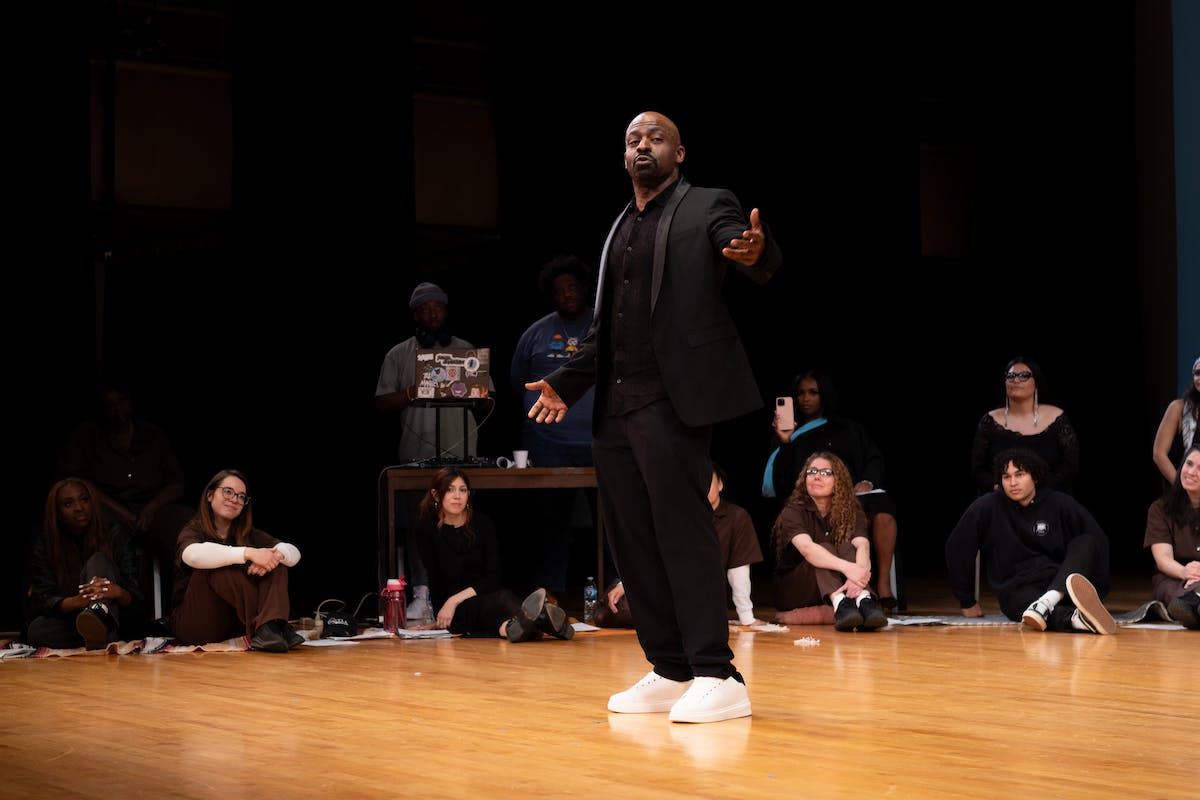UCLA’s Center for Justice infuses the arts into Prison Education Program

Every Friday for the last 12 weeks, a group of UCLA students boarded an early morning bus for a long drive to Victorville Federal Correctional Institute to learn alongside a group of women incarcerated there. On Friday March 15 they eagerly welcomed those fellow students to campus, having received special permission for the entire class to perform works derived from the program’s spoken word creative writing and performance practicum for the UCLA Prison Education Program.
Literary Liberation was the theme and the event at the Glorya Kaufman Theater was a time for tears, remembrance, expressing joy and care, sharing frustrations, fears, hopes and dreams. With live instrumental accompaniment, a DJ, and one another for support, their poetry traversed themes of deeply personal trauma, the battle for reproductive rights, political conflict, the war in Gaza, perspectives on individuality, motherhood and sisterhood, even a bit of comedy about what it’s like to be in prison.
The goal of the final performance itself was to bring these artists and learners together and inspire an audience to re-evaluate their values, change how they view people with different experiences and “be in loving community,” said Keara Williams, PhD student at UCLA’s school of education an information studies, who was the teaching assistant for the course.
For 4th year UCLA student Lauryn Guiterrez, the culmination of the course in a performance, was an overwhelming, spiritual experience.

Image: Lauryn Gutierrez performs her poem "Shadow Boxing." Photo by Jessica Wolf
“I feel like I am taking away so much from this work, from spending time at the prison and meeting all the women there,” she said. “I feel like I have new skin.”
Gutierrez is graduating this year with degrees in political science and psychology and hopes to work inside the carceral system one day.
For many of the women from Victorville, the chance to take the course was also transformative. Families and friends of the incarcerated students traveled to campus, some from states away, to watch the final performance, made possible by special allowance from the warden at the facility. The group also published an anthology of the work they created together as a keepsake.

In comments for the event’s program note, one incarcerated student, Gina (last name withheld) said up until taking this class she had never considered herself an artist.
“I have found a small part of me that sees myself blossoming into a new artist,” she said. “My dream project would be to write a book when I leave here…it’s never too late to try something new and inspire yourself to grow.”
The Prison Education Program, under the umbrella of the Center for Justice at UCLA , has been teaching inside women and juvenile prisons for nearly a decade, beginning in 2015, after women incarcerated at the California Institute for Women (CIW) wrote letters requesting a “Center for Incarceration Studies.” Their proposal called for higher education opportunities to cultivate critical thinking skills and innovative approaches to justice. Since then, UCLA’s Prison Education Program has provided courses in seven carceral facilities in Southern California. These span disciplines but are frequently arts-focused.
It wasn’t the first spoken word course for the Prison Education Program, which is led by program coordinator Jai Williams and managing director Acacia Warren along with co-founding directors of the Center for Justice, Bryonn Bain, professor in the World Arts and Cultures/Dance and African American Studies department and Claudia Peña, lecturer in the UCLA School of Law.

Image: UCLA professor Bryonn Bain also performed at Literary Liberation. Photo by Patrick Shao
Prison Education Program educators have seen first-hand the impact of their work on incarcerated individuals, such as Monica (last name withheld), a previous student in the Victorville facility who credits the ways she learned to express and think about herself via a the courses to an early release from prison.
“This had a huge impact on my ability to be able to see myself outside of the walls of the prison,” she said. “I learned (how to) express my life experiences and story through spoken word. Performing in front of the warden and prison staff was, in a word, liberating. Without those UCLA courses, I would not have been able to visualize, internalize or express the changes that are possible within myself.”
Monica is now working toward a degree in psychology and animal health science in starting at CSU San Marcos in the fall.
And the work of the Prison Education Program continues. This spring in the prison they will teach a course on vaccines and pandemics and another about women of color in social movements. They’ll partner with a local community group called A New Way of Life for classes on campus about indigenous birthing practices.
This fall the group will return to Victorville with a course titled Hip Hop Theater Collaborative, which will culminate in a performance of “WHAT IT IZ: The Spoken Wordical” — a hip hop theater production written by formerly incarcerated artists, and adapted in a creative writing workshop at the California Institute for Women (CIW) — the state’s oldest women's prison.
Posted March 20, 2024. Story by Jessica Wolf
Header image. Victorville students Gina, Tamara and Crystal perform "Slavery Then, Prison Now." Photo by Jessica Wolf

